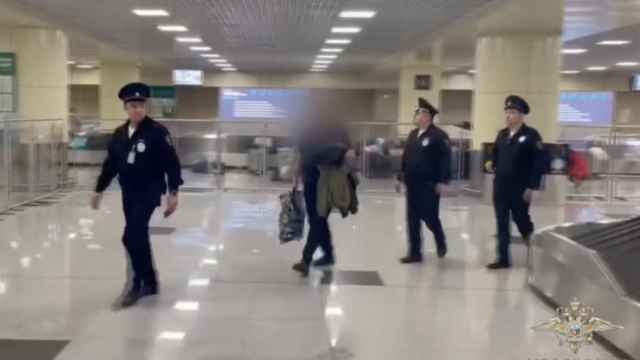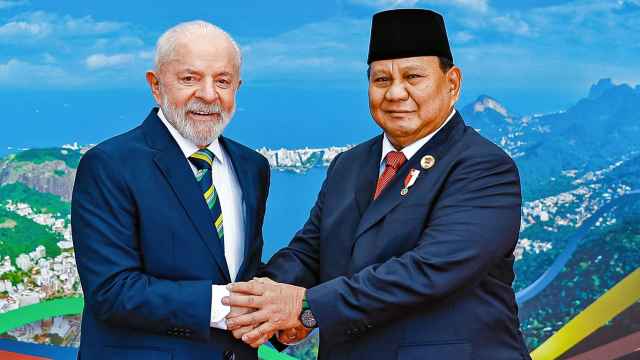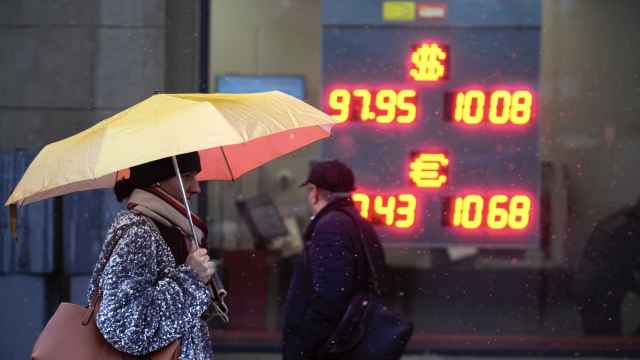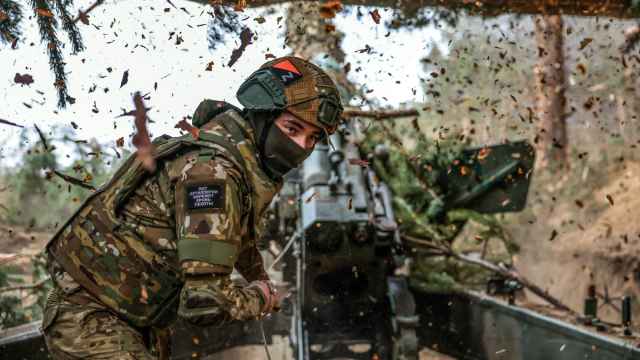As we enter 2011, the Euro-Atlantic region is a study in strategic contrasts. Over the past 20 years, no geopolitical space has undergone as dramatic a transformation as that between the Atlantic and the Urals. In our lifetimes, we have seen a welcome change from the darkest days of the Cold War, when a devastating conventional and nuclear war in Europe was a real possibility, to a new era in which no state faces this type of existential threat.
But, despite these positive developments, the two largest powers in the region — the United States and Russia — each still possesses thousands of nuclear weapons, accounting for more than 90 percent of the world’s nuclear inventory. Many of these weapons remain deployed or designed for use within the Euro-Atlantic region.
Reduction and elimination of this Cold War-era nuclear infrastructure is the largest piece of unfinished business from that bygone time. The continuing existence of large strategic nuclear forces deployed on high alert, and of tactical nuclear weapons deployed in certain NATO states and Russia, creates a risk of accidental, unauthorized or mistaken use. In addition, the risk of terrorist groups acquiring these weapons is high. Therefore, security vigilance is essential.
To meet this challenge and to build on the action plan adopted by consensus at the 2010 non-proliferation treaty review conference, we have endorsed a series of urgent, practical steps toward the long-term goal of a world free of nuclear weapons. These include:
- increasing assured warning and decision times for the launch of nuclear-armed ballistic missiles;
- developing cooperative missile defense and early-warning systems;
- ensuring the highest possible standards of security for nuclear weapons and materials;
- beginning a dialogue on tactical nuclear weapons involving Russia, the United States and NATO;
- adopting a process to bring the Comprehensive Test Ban Treaty into effect;
- developing international and multilateral approaches to manage the risks of fuel production for civilian nuclear power; and
- further reductions in U.S. and Russian nuclear forces.
As former U.S. Secretary of State George Shultz, former U.S. Defense Secretary William Perry, former U.S. Secretary of State Henry Kissinger and former U.S. Senator Sam Nunn put it in 2007: “Without the bold vision [of a nuclear weapons-free world], the actions will not be perceived as fair or urgent. Without the actions, the vision will not be perceived as realistic or possible.”
Perhaps the most crucial step toward realizing this vision is to redouble our efforts to resolve regional confrontations and conflicts that give rise to new nuclear powers. The great swath of states stretching from North America across Europe through Russia has a vital role to play in stabilizing an increasingly fragmented and stressed international order.
These states can play this role, however, only if first they transform this geographic space into a genuinely inclusive and vibrant security community. Failing that — and we are failing today — the Euro-Atlantic states and their organizations will settle for suboptimal, and too often utterly inadequate, responses to the 21st century’s security challenges, including the threat of nuclear proliferation.
Lately, several national leaders, including the Russian and U.S. presidents and NATO secretary-general, have embraced the idea of a Euro-Atlantic security community, and begun stressing the importance of fashioning a stronger and more inclusive European security order.
The timing could not be better, as the Euro-Atlantic family has entered a critical period. On Nov. 19-20, NATO heads of states approved a new “strategic concept” to guide the organization for the next decade. At the same time, President Dmitry Medvedev and his NATO counterparts issued a joint statement, endorsing the first Joint Review of 21st Century Common Security Challenges and deciding to resume threat missile defense cooperation. Two weeks later, the Organization for Security and Cooperation in Europe heads of state assembled in Astana, Kazakhstan, to help shape the OSCE’s next stage of development.
Joint action on nuclear-threat reduction must be a critical element in moving the Euro-Atlantic nations toward a level of stability and strength and allow them to exercise badly needed global leadership. Achieving a genuinely collaborative approach to missile defense matters will address a common threat and help remove misgivings that are blocking progress toward a common security space.
Similarly, the Euro-Atlantic states can mobilize behind efforts to strengthen the International Atomic Energy Agency’s safeguards system, which ensures the nondiversion of peaceful nuclear programs, in order to foster cooperation on countering the threat of nuclear terrorism and to develop new mechanisms to protect jointly critical infrastructure from cyber attacks. Such actions are crucial to these states’ national security and global efforts to mitigate threats.
Pursuing arrangements that increase warning and decision-making time for all countries in the Euro-Atlantic region would introduce stability into the NATO-Russia relationship. Adjustments in operational doctrine that are applied to strategic, tactical and conventional forces would constitute a giant step toward ending the relationship’s militarized framework.
This is only a partial list of what must be done if governments are serious about building a stronger, inclusive European security order, one where the roles and risks of nuclear weapons are reduced and ultimately eliminated. We are working with a distinguished group from all corners of the Euro-Atlantic region to develop these and other concrete steps that are essential to creating a genuine security community, including its economic, energy and environmental dimensions. NATO, OSCE and other key regional institutions must give this concept and process their essential support.
A Message from The Moscow Times:
Dear readers,
We are facing unprecedented challenges. Russia's Prosecutor General's Office has designated The Moscow Times as an "undesirable" organization, criminalizing our work and putting our staff at risk of prosecution. This follows our earlier unjust labeling as a "foreign agent."
These actions are direct attempts to silence independent journalism in Russia. The authorities claim our work "discredits the decisions of the Russian leadership." We see things differently: we strive to provide accurate, unbiased reporting on Russia.
We, the journalists of The Moscow Times, refuse to be silenced. But to continue our work, we need your help.
Your support, no matter how small, makes a world of difference. If you can, please support us monthly starting from just $2. It's quick to set up, and every contribution makes a significant impact.
By supporting The Moscow Times, you're defending open, independent journalism in the face of repression. Thank you for standing with us.
Remind me later.





